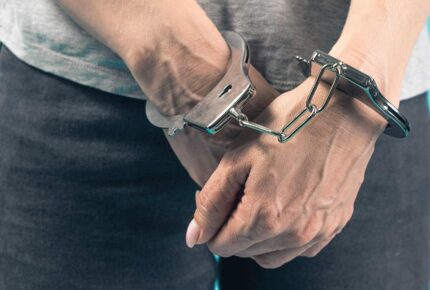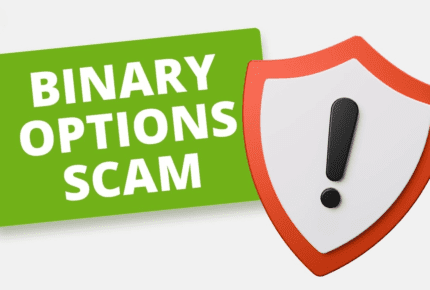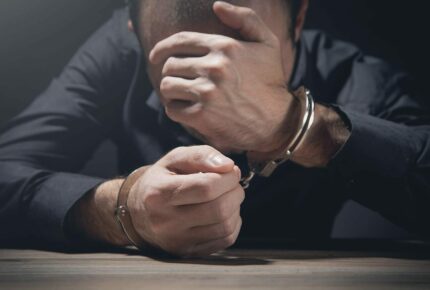

Being accused of digital piracy and copyright infringement for the first time carries significant legal consequences within the United Kingdom. Digital piracy and copyright breach involve the unauthorised reproduction or distribution of copyrighted material. This article delves into the key aspects of digital piracy and copyright breach under English law, the typical legal procedures, potential penalties, and options for seeking legal assistance when faced with such allegations. If you discover yourself in the unfortunate situation of being charged with digital piracy or copyright breach as a first-time offender, getting the advice of a specialist solicitor is imperative.
What is a digital piracy and copyright offence?
In English law, digital piracy and copyright offences involve various statutes and crimes related to the unauthorised reproduction, distribution, or infringement of copyrighted material. Some key statutes and offences in this context include:
Copyright, Designs and Patents Act 1988 (CDPA 1988):
- Section 16: Infringement by copying.
- Section 17: Infringement by issuing copies to the public.
- Section 20: Importation or possession of infringing copies.
- Section 107A: Criminal liability for making or dealing with infringing articles.
- Section 92: Offences relating to unauthorised use of a registered trademark.
- Section 2: Fraud by false representation, which may apply in cases of copyright fraud.
- Section 1: Unauthorised access to computer material.
- Section 3: Unauthorised modification of computer material.
- Section 127: Offences related to improper use of public electronic communications network.
- Contains provisions related to online copyright infringement.
In digital piracy and copyright cases, the prosecution typically needs to prove:
- Ownership of Copyright: Identify the copyrighted material and its rightful owner.
- Unauthorised Use: Show that the defendant copied, distributed, or made available copyrighted material without permission.
- Intent (if required): Prove that the defendant knowingly intended to infringe copyright.
- Actual Infringement: Demonstrate that the defendant’s actions led to copyright infringement.
- Exclusive Rights Violation: Confirm that the defendant violated the copyright holder’s exclusive rights.
- Financial Gain (if relevant): Establish that the defendant benefited financially from the infringement.
- Evidence: Present evidence that proves the defendant’s involvement in the infringing activities.
The above statutes, among others, provide the legal framework for addressing digital piracy and copyright offences in English law. Offences may include illegally downloading, sharing, or distributing copyrighted material, as well as engaging in activities that infringe upon the intellectual property rights of others. Penalties for these offences can range from fines to imprisonment, depending on the severity of the infringement and the specific circumstances of the case.
What are some examples of digital piracy and copyright offences?
Here are some examples of digital piracy and copyright offences under English law:
- Illegally downloading and sharing copyrighted music or movies using file-sharing software.
- Selling counterfeit DVDs or Blu-rays that infringe upon copyrighted films.
- Uploading copyrighted content, such as books or software, to a torrent site for others to download without authorization.
- Running a website that offers unauthorised streaming of copyrighted TV shows, movies, or sports events.
- Manufacturing and distributing counterfeit merchandise that bears copyrighted logos or artwork.
- Reproducing and selling copyrighted software or video games without the permission of the copyright holder.
- Making unauthorised copies of academic materials, such as textbooks or research papers, and selling them.
- Broadcasting copyrighted content without the necessary licences, such as airing a live sports event without rights.
- Modifying or cracking digital rights management (DRM) protection on software or media to facilitate piracy.
- Creating and distributing fake certificates or licences to enable the use of copyrighted software or services without payment.
What happens if you are accused of digital piracy and copyright offences?
If you are accused of digital piracy and copyright offences in the United Kingdom, several legal procedures and consequences can occur, including:
- Investigation: Police and other agencies or copyright holders may investigate the alleged offences. They may collect evidence, including IP addresses, website data, and digital traces related to the copyright infringement.
- Legal Action: Depending on the severity of the alleged infringement and the evidence collected, legal action may be taken against you. This can include civil and criminal actions, with copyright holders or authorities bringing a case against you.
- Civil Lawsuits: Copyright holders may file civil lawsuits seeking damages and injunctions to stop the infringement. If found liable in a civil case, you may be required to pay compensation to the copyright holder and cease the infringing activities.
- Criminal Prosecution: In more serious cases, criminal charges may be filed. Criminal prosecution can lead to fines and imprisonment if convicted of copyright offences under relevant statutes, such as the Copyright, Designs and Patents Act 1988.
- Asset Seizure: Authorities may seize assets related to the alleged copyright offences, such as computers, servers, or equipment used for piracy.
- Penalties: Penalties for copyright offences can vary, but they may include fines, probation, community service, or imprisonment, depending on the gravity of the infringement.
- Settlements: In some cases, you may be offered the option to settle the matter out of court by paying a negotiated amount to the copyright holder to avoid further legal action.
The specific consequences you may face can vary widely based on the circumstances of the case, the evidence presented, and the applicable laws. Copyright infringement cases can result in both civil and criminal liabilities, so it is vital that you take such accusations seriously and consult with legal professionals to understand your options and potential outcomes.
What is the sentence for digital piracy and copyright offences?
The sentencing for digital piracy and copyright offences in the UK depends on various factors and follows sentencing guidelines issued to judges by the Sentencing Council. The severity of the sentence is influenced by elements such as the extent of the infringement, the financial harm caused, the intent of the offender, and any aggravating or mitigating circumstances. The maximum sentence is 10 years’ imprisonment.
When determining the sentence for digital piracy and copyright offences, the judge considers aggravating and mitigating factors.
Aggravating factors are elements that make the offence more serious and may result in a harsher sentence. Examples include:
- Large-scale distribution of copyrighted material targeting vulnerable populations.
- Deliberate and systematic infringement of copyrighted works with a history of repeated violations.
- Engaging in organised piracy networks or criminal enterprises dedicated to copyright infringement.
- Using advanced encryption or anonymizing tools to evade detection and law enforcement.
- Exploiting copyrighted material for commercial purposes while causing substantial financial harm to copyright owners.
- Willful infringement of intellectual property rights of independent artists or small content creators.
- Targeting critical infrastructure, government institutions, or public services with pirated content that poses security risks.
Mitigating factors, conversely, are elements that may reduce the defendant’s culpability and result in a more lenient sentence. Examples include:
- Limited or unintentional infringement, with no intent to profit or financial gain.
- Lack of previous copyright infringement convictions or a clean legal record.
- Demonstrated cooperation with copyright holders or law enforcement during the investigation, such as providing information or assisting in identifying other infringing parties.
- Voluntarily removing or taking corrective measures to address the copyright infringement promptly upon notification or discovery.
- A genuine effort to support and promote legal content consumption, such as by actively promoting legitimate sources of copyrighted material.
- A clear demonstration of remorse or efforts to make amends for the infringement, such as public apologies, restitution to copyright holders, or engagement in anti-piracy advocacy.
The goal of the sentencing guidelines is to ensure fairness and proportionality in sentencing while allowing for flexibility to address the unique factors of each case. Penalties for digital piracy and copyright offences can include fines, community service, probation, or imprisonment, with the severity of the sentence reflecting the gravity of the infringement and the harm caused to copyright holders.
Will I go to prison if it is my first time committing a digital piracy and copyright offence?
Whether you go to prison for a first-time digital piracy and copyright offence depends on various factors, including the nature of the actions that led to the offence, the severity of the offence, and the specific circumstances of your case. In many cases, first-time offenders may face civil penalties, fines, or warnings rather than criminal charges, especially if the infringement was unintentional or non-commercial.
However, if your actions involved serious copyright infringement, large-scale distribution of pirated content, or criminal intent, you could potentially face criminal charges, including the possibility of imprisonment.
Where to get more help
If you or someone you know is facing charges related to digital piracy and copyright infringement under English law, it is critical to get expert legal advice and representation. Your choice of solicitor can have a substantial influence on the final outcome of your case. Seasoned solicitors specialising in intellectual property and cybercrime matters can offer valuable guidance and ensure the safeguarding of your rights throughout the legal proceedings. For a confidential consultation at no cost, contact the team at Stuart Miller Solicitors today.
OUR COMMITMENTS TO YOU:
-
Responsive
A legal expert will consult you within 24 hours of making an enquiry.
-
Empathetic
We will always treat you with trust, understanding and respect.
-
Specialised
Your case will be handled by an expert who specialises in your type of offence.
-
Proactive
We will take early action to end proceedings as soon as it is practically and legally possible to do so.
-
Engaged
You will be kept updated on your case at all times. We will provide a named contact available to answer your questions.
-
Caring
We understand this is a difficult and stressful time for you and your family. Our team will support you every step of the way.
-
Tenacious
We will never give up on your case. We fight tirelessly to get you the best possible outcome.

